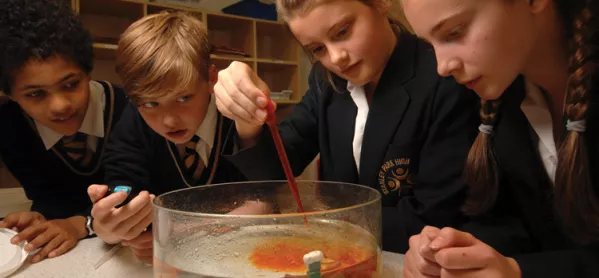When I started teaching, there was excitement and significant debate about what we taught and offered children in the early years of secondary education. My colleagues in our English department would argue (endlessly) about which texts would be taught, how to bring these “alive” to our readers, which latest resource from the English & Media Centre was the best and how we might really teach reported speech (without too much onerousness).
Of course, we were aided in our deliberations by access to the national curriculum, which prescribed in great detail what children in each year should be taught. To end the phase, students sat the dreaded KS3 Sats, demonstrating, if nothing else, that what gets measured gets valued. How times have appeared to change. KS3? What is it now good for? According to the Ofsted report, Key Stage 3: The Wasted Years?, not a great deal in too many schools.
It is a sad state of affairs that the accountability tail wags the curriculum dog. The greater demand of the new GCSEs is causing many schools to extend key stage 4 down into Year 9, provoking a caustic response from Ofsted.
Her Majesty’s chief inspector, Amanda Spielman, has stated that “the GCSE tests are designed to cover two years’ worth of content. It is hard to see how taking longer than two years could expose pupils to more knowledge and not more test preparation.”
Key stage 3 is like the poor relation
Yet, given the impact that poor outcomes can have on a school’s standing within and beyond its community, it is hardly surprising that schools are taking this frowned-upon route.
As it stands, KS3 feels like the poor relation across education. It’s squeezed from below by a primary curriculum that has its own testing regime which compresses the focus, certainly in Year 6, to English and maths to the detriment of the rest of the curriculum. The new GCSEs are turning Years 7 and 8 into little more than Years 1 and 2 of a GCSE course.
Indeed, there are schools where children in the first two years of secondary are receiving end-of-year targets and getting assessed using the new 9 grade GCSEs. Because of the all-or-nothing nature of KS4 and Year 11 in particular, Years 7 and 8 typically have the tail-end of teaching, with split classes and non-specialists common, too. As the recruitment crisis hits schools harder, fewer trained specialists will be around to offer strong teaching in science, maths and languages, as you might expect, but also in history and geography, too - which have both seen a rise in subject time in KS3.
If this all sounds too depressing, perhaps that’s because it is. However, we (myself and three other teachers who sit on an education committee for the NAHT) hope to offer some challenge to and perspective for schools and policy-makers to try and go more boldly back to curriculum design and raise the bar for their Years 7 and 8 especially. If nothing else, it would be great if schools could start by asking, “What actually do we want these pupils to achieve (and not just do/learn/know)?”
Over the next few weeks, you’ll hear from my other three headteacher colleagues, who will be offering their perspective on KS3. Wouldn’t it be great if we could help to make Years 7 and 8 the “golden years” for all?
Rob Campbell is the CEO of the Morris Education Trust in Cambridgeshire

